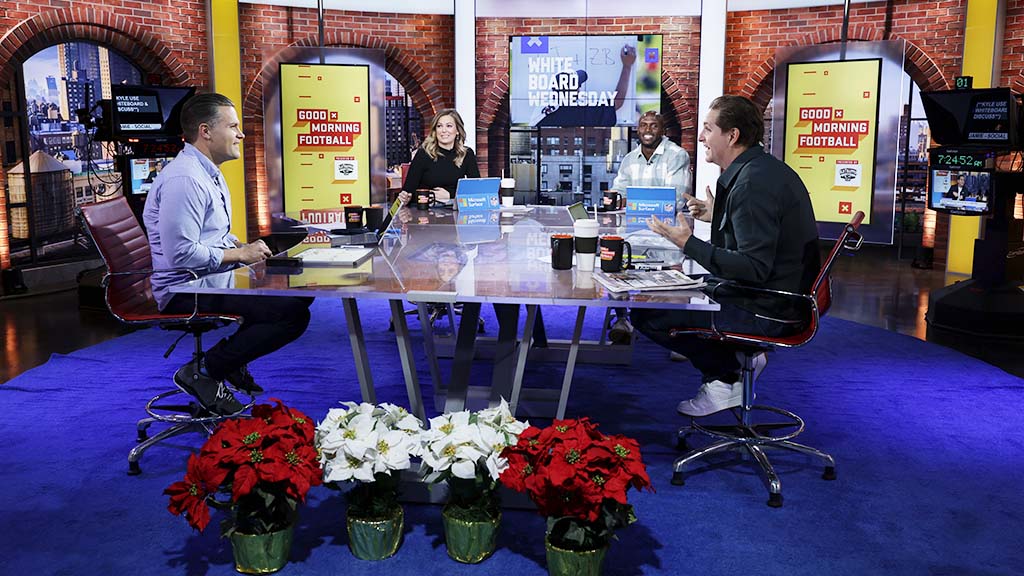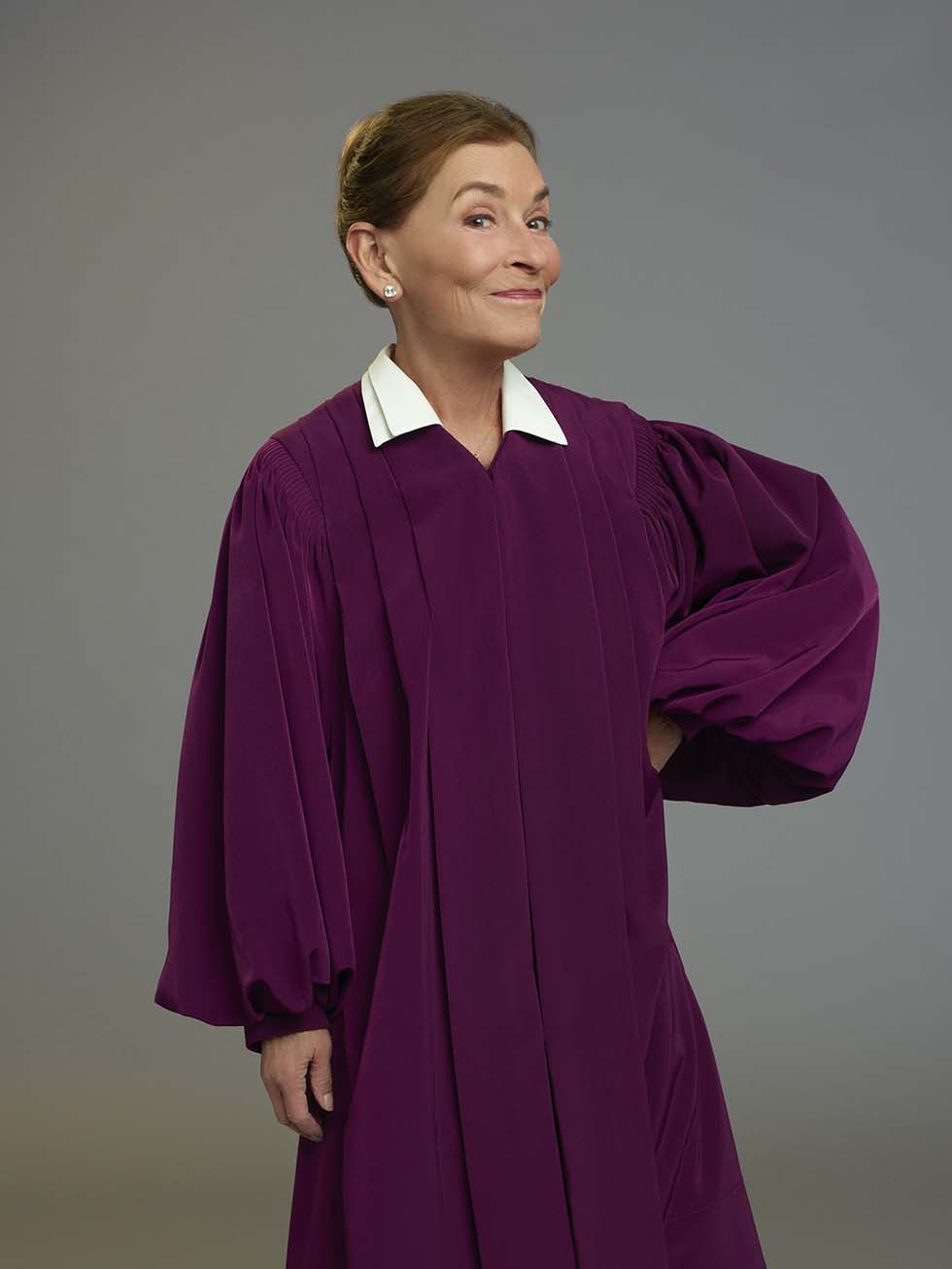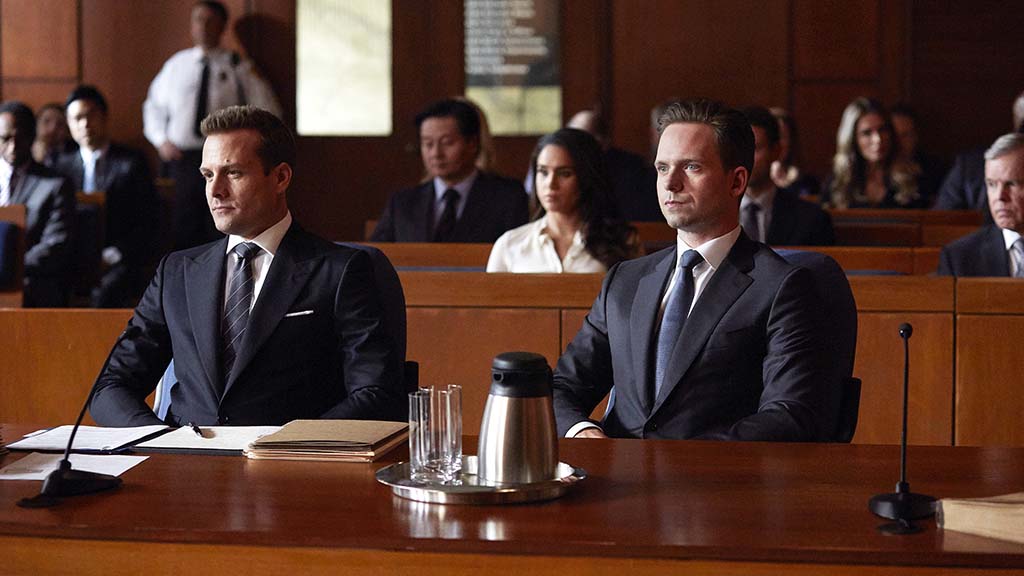Syndication’s Old Rules No Longer Apply
Anything goes as station groups forge their own content fiefdoms

The smarter way to stay on top of broadcasting and cable industry. Sign up below
You are now subscribed
Your newsletter sign-up was successful
In an environment where content is available everywhere and all the time, station groups are picking up shows from places and platforms that were previously considered off-limits. Rules such as number of episodes, national clearance and exclusivity are no longer in play. Instead, groups are looking at factors such as economics and versatility, as well as what they can produce themselves when it comes to programming.
Producers have been placing first-run shows on streaming channels for several years to create secondary revenue streams. But it’s been only recently that TV stations have begun to acquire shows off of streamers. That’s largely because streaming channels had not aired the types of day-and-date programs that stations need, but with the arrival of FAST (free ad-supported television) channels, that is changing. The proliferation of platforms has also rendered exclusivity almost moot.
“There’s very little duplication of audiences between streaming and broadcast,” Stephen Brown, executive VP, programming and development, Fox Television Stations and Fox First Run, said. “It’s OK when you are trying to aggregate an audience to have it on multiple platforms. That’s the reality of our business and I think that broadcasters are beginning to understand that.”
For example, Judge Judy ended original production in 2021, but daytime viewers scarcely know that. CBS Media Ventures (CMV) sold the show’s library episodes — also known as repeats — to stations for much-lower license fees.

Judge Judy continues to average around a 4.0 household rating, according to Nielsen, ranking it fourth in overall syndication, behind only the top-rated game shows. In February, the CBS- and Fox-owned station groups both renewed Judge Judy for three more years, and Gray Television and Hearst Television also picked up the veteran court show in multiyear deals.
In the meantime, Judge Judy Sheindlin herself moved on to Amazon Studios, where she stars in Judy Justice and produces panel court series Tribunal Justice for free streamer Freevee. In the first example of a show coming to syndication from a streamer, Scott Koondel and his Sox Productions have cleared Judy Justice in all-barter multiyear deals in 99% of the country on such groups as Nexstar Media Group, Sunbeam Television, Cox Media Group, Weigel Broadcasting and Mission Broadcasting, Koondel said. Two seasons of Judy Justice have aired on Freevee and a third is in the works.
Koondel has agreements in place for stations to take Tribunal Justice starting with the 2026-27 season, giving those stations Judy-centric court blocks. He is also offering stations that did not renew Judge Judy in this cycle two more episodes of Judy Justice each day.
The smarter way to stay on top of broadcasting and cable industry. Sign up below
Station executives argue that the deal is not so groundbreaking, since Judy Justice is essentially a new version of Judge Judy. But the key difference is that Amazon already paid for the show to be produced, so stations can now acquire it without cash changing hands.
‘Football’ All Year Round
Another example of a show that’s tweaking the typical business model is Sony Pictures Television’s Good Morning Football. The football-focused talk show has aired on NFL Network since 2016. Now, NFL Network is moving the show from New York to Los Angeles’s SoFi Stadium and expanding it by two hours. Those two new hours are being packaged and sold to TV stations, and possibly other platforms, to run five days a week in any time period a station prefers. The expansion hours will be produced 42 to 48 weeks a year, giving stations year-round programming.
Good Morning Football is poised to break the mold in a few ways — one of which is that TV stations generally haven’t aired sports programming in syndication. But nothing on broadcast TV is as marketable or appealing as the NFL, so it makes sense TV stations would want to offer pro football-focused programming to their local audiences.
In a similar vein, broadcast networks are also starting to toy with the model of letting other platforms pay for the privilege of getting a show’s first run. Amazon MGM Studios is producing a U.S. remake of hit British game show 1% Club, with Patton Oswalt as host. Eight days after each episode debuts on Prime Video, it will run on Fox.
“Deals like this make broadcast sustainable when it was increasingly becoming not,” Frank Cicha, executive VP, programming, Fox TV Stations and MyNetworkTV, said. “This is what needs to happen.”
NBCUniversal is currently in the market floating the idea of bringing Suits to TV stations, sources said, after the off-basic cable show became a streaming sensation on Netflix. Suits — starring Duchess of Sussex Meghan Markle, Gabriel Macht and Patrick J. Adams — originally aired on USA Network from 2011 to 2019. It was previously available on Prime Video, but Netflix snapped up the rights to seasons one through eight when they became available and started streaming the show in June. (Season nine, by which time Markle and Adams had departed, is only available on Peacock.) All of a sudden, a show that had been off the air for four years was dominating the streaming charts for weeks on end.

Should TV stations decide to pick up an off-network run of Suits, it will mark the first time a series has started on cable, moved to streaming and then headed to TV stations — riding a resurgence years after its original cable run.
Similarly, Amazon MGM is considering bringing procedural Bosch to TV stations. Bosch, starring Titus Welliver, aired for seven seasons on Prime Video and its sequel, Bosch: Legacy, also starring Welliver, has aired for two seasons on Amazon Freevee with season three on the way. Stations would have plenty of episodes to work with even with the shorter seasons that streamers typically order.
All of this gives TV stations more options and flexibility as they consider their programming options.
“A lot of the shows we’re doing now, we’re acquiring on a nonexclusive basis,” E.W. Scripps head of programming, national networks Tom Zappala said. “With declining ratings on the traditional side, you need more avenues to monetize the shows.”
Scripps, which now owns Court TV, is looking at how it can turn a true-crime show like Someone They Knew into a program it can run on its TV stations. Scripps also owns such FAST networks as Bounce, Grit and Laff, acquired from Katz Media Group in 2017. Scripps purchased Ion Media’s networks and TV stations in 2017 and offers national news service, Scripps News, formerly Newsy, which streams over OTT platforms. Many Scripps stations offer an hour of Scripps News each day.
“There are fewer syndicated options, but we are creating our own opportunities with the content we create and with our recent foray into sports,” Zappala said.
Groups Churn Out Content Hubs
Scripps is a good example of what many television station groups — including Nexstar, Sinclair and Gray — are doing, which is making themselves into local, regional and, in some cases, national content hubs. Groups are producing local content and news and offering that content over TV stations, FAST channels, diginets and apps.
Gray has Investigate TV Plus, which it produces and runs on its owned TV stations in 113 markets, Matt Jaquint, senior managing VP and chief revenue officer at the station group, said. Gray is considering taking Investigate TV Plus out to the rest of the country. Gray also has FAST channel Local News Live, produced from its Washington, D.C., bureau. A version of LNL already airs as a linear show on Gray’s NBC and The CW affiliate WIS in Columbia, South Carolina, and Gray could add LNL to its other owned stations.
Station groups selling their programming to other broadcasters is something that is always discussed but rarely works. As traditional providers pull back, though, stations need to produce for themselves.
“I think that will be looked at more and more as we look at synergies and costs, because these things aren’t cheap to make,” Jaquint said. “I think as station groups consider what we can do together that makes sense, that’s how the industry changes.”
By taking advantage of all of these options, stations can be less reliant on expensive shows produced by Hollywood studios, although buyers say there’s still room in a mix for a few of those.
“We are definitely still willing to pay for premium syndication,” Jaquint said. “Wheel of Fortune and Jeopardy! are perfect examples; we have those in 53 of our markets. There’s a reason we still pay for syndication, but the cost has to fit the model and daytime is a tougher place to make that work.”
While the local TV-station business has gotten tougher than ever, as recent station-group earnings reports demonstrate, groups are now freed up to find programming in whatever ways work for them.
“We’re willing to look at content wherever it is coming from,” Zappala said. “Our main feature is local news and information. Our job is to get great information and deliver it to people across all those different ways of distribution. That’s why I see more optimism in our future.”
Contributing editor Paige Albiniak has been covering the business of television for more than 25 years. She is a longtime contributor to Next TV, Broadcasting + Cable and Multichannel News. She concurrently serves as editorial director for The Global Entertainment Marketing Academy of Arts & Sciences (G.E.M.A.). She has written for such publications as TVNewsCheck, The New York Post, Variety, CBS Watch and more. Albiniak was B+C’s Los Angeles bureau chief from September 2002 to 2004, and an associate editor covering Congress and lobbying for the magazine in Washington, D.C., from January 1997 - September 2002.

